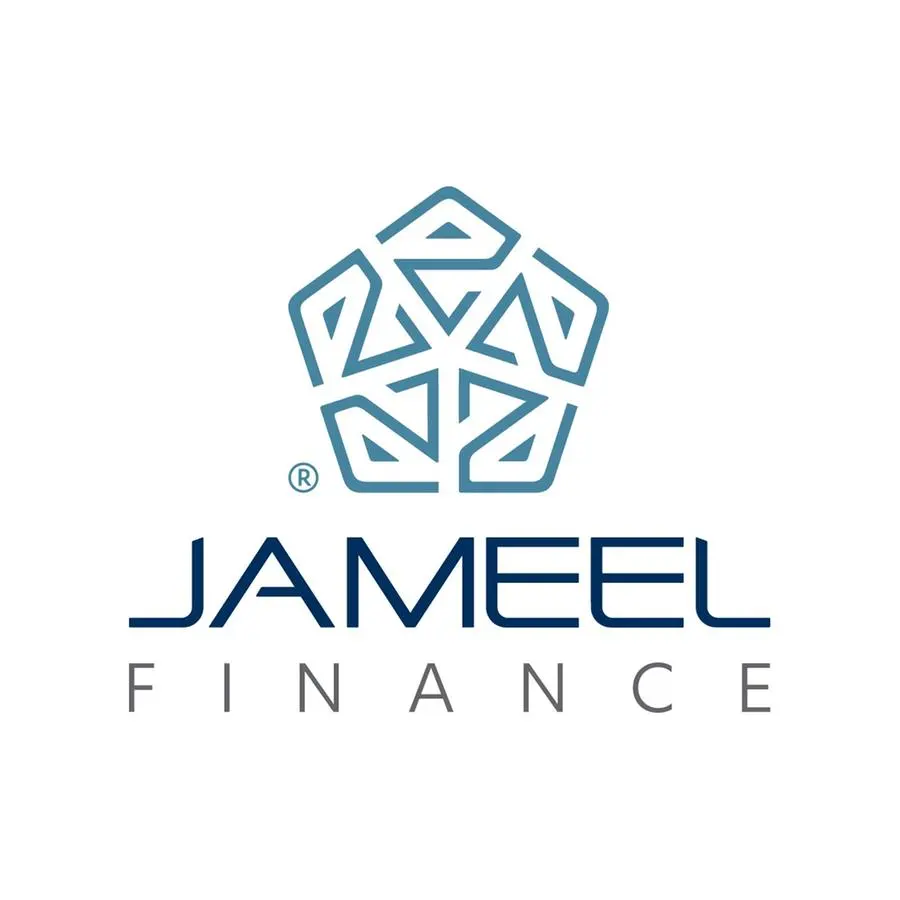Fitch Ratings - Hong Kong: Fitch Ratings has affirmed Jordan's Long-Term Foreign-Currency Issuer Default Rating (IDR) at 'BB-' with a Stable Outlook
A full list of rating actions is at the end of this rating action commentary.
KEY RATING DRIVERS
Reforms, Resilient Funding: Jordan's ratings are supported by a record of gradual fiscal and economic reforms and resilient financing linked to the liquid banking sector, public pension fund and international support. The ratings are constrained by high government debt, weak growth, risks stemming from domestic and regional politics and large external financing needs. Jordan has largely been shielded from the fallout of the Russia-Ukraine war by long-term gas supply agreements, large strategic wheat reserves, soaring fertiliser exports and a strong recovery of its tourism sector.
Budget Deficit Narrowing, Despite Subsidy Slippage: Strong revenue collection will drive a narrowing of Jordan's fiscal deficit this year. We expect Jordan's general government (GG) deficit to narrow to 3.8% of GDP in 2022, from 4.3% of GDP in 2021. These revenue gains will help offset an increase in fuel subsidy spending, despite under-execution of capital spending and efforts towards spending control in other areas, including an ongoing freeze on civil service hiring and bonuses. The authorities froze domestic petrol prices in February 2022 (domestic prices had been adjusted in line with global prices since 2012). They started phasing out subsidies in May and have committed to removing them completely by the end of the year, but the IMF has estimated that the temporary subsidies will still cost 0.9% of GDP in 2022.
Fiscal Consolidation, Reforms to Continue: We expect the GG deficit to narrow to 3.1% of GDP in 2023 and 2.7% in 2024 (budgetary central government (CG) deficit: 4.9% of GDP and 4.8% of GDP, respectively). This will be driven primarily by further structural fiscal reforms boosting revenues/GDP and the phasing out of petrol subsidies. Falling unemployment and rising labour force participation are also contributing to higher surpluses at the Social Security Corporation (SSC). Some of these fiscal gains will be consumed by higher debt servicing costs.
The CG deficit is structurally wider than the GG deficit, principally reflecting the surpluses of the SSC (about 2% of GDP in 2022, excluding interest on government debt), and the netting out of government interest payments to the SSC (over 1% of GDP).
Strong International Backing: Foreign grants and concessional support loans were over USD3 billion in 2021 (7.3% of GDP, slightly higher than 2020). Most of the USD1.1 billion in budget support grants comes from the US. The World Bank, the IMF and EU countries and institutions remain the main lenders. In July 2022, President Biden announced the intention to enter into a new Memorandum of Understanding (MOU) on assistance to Jordan, with a commitment to provide a minimum USD1.45 billion per year in economic and military assistance (grants) between 2023 and 2029, an extension and augmentation of the previous MOU.
IMF Programme on Track: The IMF Board approved the fourth review of Jordan's Extended Fund Facility arrangement in June 2022, increasing disbursements in 2022 by USD165 million (to over USD500 million), including augmentation of access by USD100 million. The programme is set to last until March 2024, with remaining disbursements in 2022-2024 of about USD570 million (over 1% of GDP). Jordan enjoys strong relations with the IMF and its programmes have provided a policy anchor.
Government Debt Peaking: Under our baseline scenario, GG debt, including guarantees, will peak at about 94% of GDP 2022 (forecast 'BB' median: 55% of GDP), with the subsequent decline aided by a return to growth and primary surpluses. Guarantees relate principally to the water and electricity sectors and are at high risk of being called; the government already services the debt of Jordan's water authority. Consolidated GG debt is below CG debt, as the SSC holds government debt worth 22% of GDP. Our GG debt projections assume that the National Electric Power Company (NEPCO) will incur on average about 0.5% of GDP a year in new guaranteed debt in 2022-2024 to cover its operating deficit, assuming partial impact from the coming on-stream of an expensive new oil shale power purchase agreement.
Growth Recovering, but Structurally Weak: We forecast GDP growth of 2.3% in 2022 (1Q22: 2.5% yoy), and 2.5% in 2023-2024, buoyed by manufacturing, tourism, IT services as well as strong domestic demand. Monetary tightening and geopolitics pose risks to growth, although high oil prices may create positive spillovers to Jordan from the GCC, which is a key source of tourism, investment and remittances. To boost medium-term growth potential, the government is working on a range of structural reforms, including measures to boost labour force participation among women and the youth, and more broadly strengthen governance and competitiveness. An electricity tariff reform implemented in early 2022 reduced tariffs on productive sectors (offset by tariff hikes for wealthier households).
External Funding Needs High but Falling: We expect Jordan's current account deficit to decline to 6.6% of GDP (USD3.1 billion) in 2022 from 8.8% of GDP in 2021, as a rebound in travel receipts offsets the higher oil product imports. Trade and tourism links with Russia and Ukraine are minimal. In February 2022, Jordan had 15 months of wheat reserves. Soaring exports of potash, phosphate, fertilisers and related chemicals have offset rising costs of food and agricultural commodities. Long-term agreements have meant minimal increases in gas import prices. External public debt maturities are USD1.5 billion in 2022 and lower in 2023-2024.
Domestic Social Stability Concerns Remain: The high unemployment rate among Jordanians (nearly 23% in 1Q22 despite recent declines) and Jordan's hosting of 1.3 million Syrian refugees pose risks to domestic social stability, particularly in an environment of low growth and rising inflation. An extensive and targeted social safety net, limited but gradually expanding scope for political participation and a strong security presence are among the factors limiting the risk of major political upheaval. Political stability has been broadly maintained under the leadership of King Abdullah. New electoral and political party laws were issued in April 2022, aiming to gradually increase the role of political parties in parliament, on the recommendations of a royal commission appointed in 2021.
Jordan has an ESG Relevance Score (RS) of '5' Political Stability and Rights and '5[+]' for the Rule of Law, Institutional and Regulatory Quality and Control of Corruption. Theses scores reflect the high weight that the World Bank Governance Indicators (WBGI) have in our proprietary Sovereign Rating Model. Jordan has a medium WBGI ranking at the 50th percentile.
RATING SENSITIVITIES
Factors that could, individually or collectively, lead to negative rating action/downgrade:
-Public Finances: Increase in government debt/GDP over the medium term, for example, due to insufficient narrowing of the budget deficit or weak growth.
-Structural Features: Deterioration in domestic political stability or geopolitical shocks that adversely affect the economy or public finances.
-External Finances: Weakening of support from external partners and further marked rise in external indebtedness.
Factors that could, individually or collectively, lead to positive rating action/upgrade:
- Public Finances: Sustained decline in government debt/GDP, for example through a combination of reforms to boost revenue/GDP, contain spending and boost growth.
-Macro: Sustained increase in growth to above pre-pandemic levels bringing about a decrease in the unemployment rate.
-External Finances: Lower current account deficit, especially if combined with higher net foreign direct investment that reduces upward pressure on net external debt.
SOVEREIGN RATING MODEL (SRM) AND QUALITATIVE OVERLAY (QO)
Fitch's proprietary SRM assigns Jordan a score equivalent to a rating of 'BB' on the Long-Term Foreign-Currency (LT FC) IDR scale.
Fitch's sovereign rating committee adjusted the output from the SRM score to arrive at the final LT FC IDR by applying its QO, relative to SRM data and output, as follows:
Public Finances: -1 notch, to reflect high government debt/GDP and risks to medium-term debt stabilisation, including from loss-making government entities, social pressures and weak growth.
Fitch's SRM is the agency's proprietary multiple regression rating model that employs 18 variables based on three-year centred averages, including one year of forecasts, to produce a score equivalent to a LT FC IDR. Fitch's QO is a forward-looking qualitative framework designed to allow for adjustment to the SRM output to assign the final rating, reflecting factors within our criteria that are not fully quantifiable and/or not fully reflected in the SRM.
BEST/WORST CASE RATING SCENARIO
International scale credit ratings of Sovereigns, Public Finance and Infrastructure issuers have a best-case rating upgrade scenario (defined as the 99th percentile of rating transitions, measured in a positive direction) of three notches over a three-year rating horizon; and a worst-case rating downgrade scenario (defined as the 99th percentile of rating transitions, measured in a negative direction) of three notches over three years. The complete span of best- and worst-case scenario credit ratings for all rating categories ranges from 'AAA' to 'D'. Best- and worst-case scenario credit ratings are based on historical performance. For more information about the methodology used to determine sector-specific best- and worst-case scenario credit ratings, visit https://www.fitchratings.com/site/re/10111579.
REFERENCES FOR SUBSTANTIALLY MATERIAL SOURCE CITED AS KEY DRIVER OF RATING
The principal sources of information used in the analysis are described in the Applicable Criteria.
ESG CONSIDERATIONS
Jordan has an ESG Relevance Score of '5' for Political Stability and Rights as World Bank Governance Indicators have the highest weight in Fitch's SRM and are therefore highly relevant to the rating and a key rating driver with a high weight. As Jordan has a percentile rank below 50 for the respective Governance Indicator, this has a negative impact on the credit profile.
Jordan has an ESG Relevance Score of '5[+]' for Rule of Law, Institutional & Regulatory Quality and Control of Corruption as World Bank Governance Indicators have the highest weight in Fitch's SRM and are therefore highly relevant to the rating and are a key rating driver with a high weight. As Jordan has a percentile rank above 50 for the respective Governance Indicators, this has a positive impact on the credit profile.
Jordan has an ESG Relevance Score of '4' for Human Rights and Political Freedoms as the Voice and Accountability pillar of the World Bank Governance Indicators is relevant to the rating and a rating driver. As Jordan has a percentile rank below 50 for the respective Governance Indicator, this has a negative impact on the credit profile.
Jordan has an ESG Relevance Score of '4' for Creditor Rights as willingness to service and repay debt is relevant to the rating and is a rating driver for Jordan, as for all sovereigns. As Jordan has a fairly recent restructuring of public debt in 2002, this has a negative impact on the credit profile.
Except for the matters discussed above, the highest level of ESG credit relevance, if present, is a score of '3'. This means ESG issues are credit-neutral or have only a minimal credit impact on the entity, either due to their nature or to the way in which they are being managed by the entity. For more information on Fitch's ESG Relevance Scores, visit www.fitchratings.com/esg.
-Ends-



















